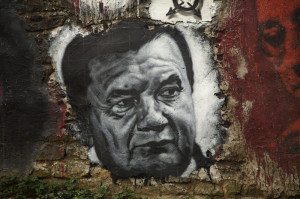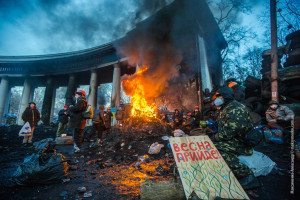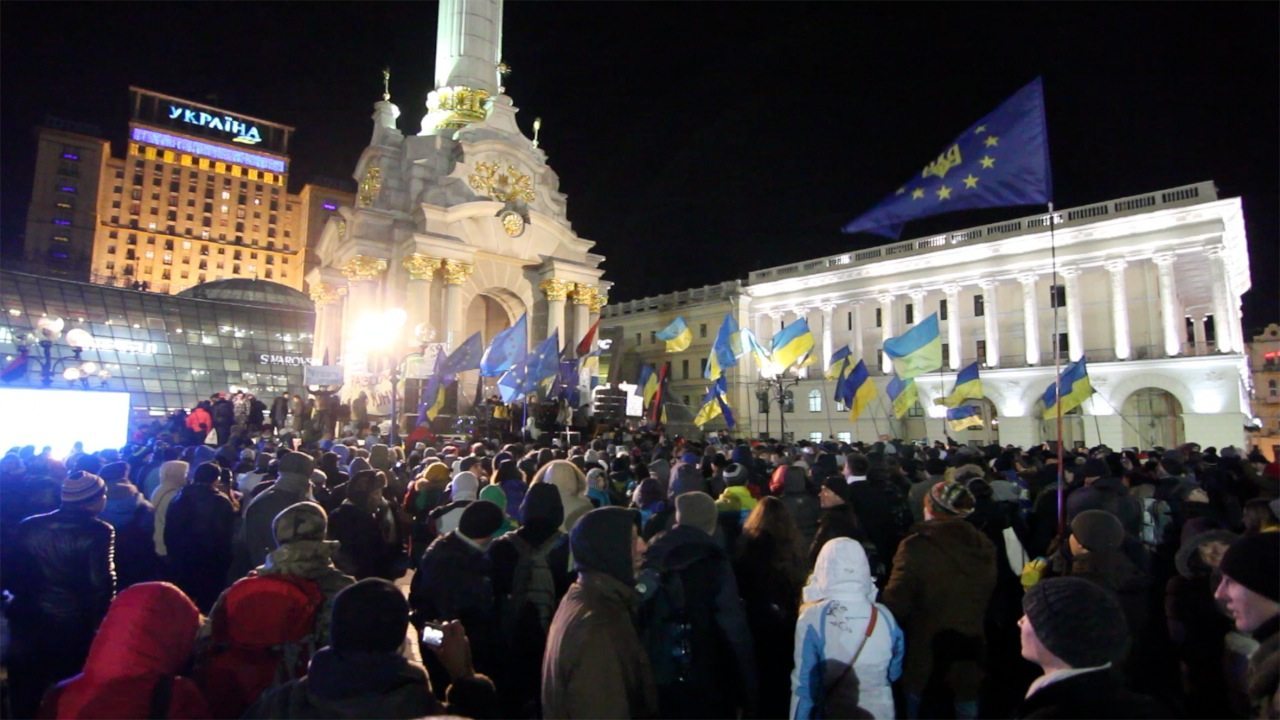Ukraine: A Deeply Confusing Conflict
The great Ukrainian poet Taras Shevchenko once described his nation as ‘this land of ours that is not our own’, and the constant occupation of Ukraine by foreign powers has been a theme of its history. Since gaining independence from the USSR in 1991, though, it has been a country divided.
Located as it is between the European Union on one side and Russia on the other, Ukraine is suffering from something of an identity crisis. Many from the East of the country, such as President Viktor Yanukovych and his Party of Regions, speak Russian as well as Ukrainian and favour strong links with their old masters. However, a growing number of people in Western Ukraine speak Ukrainian only, and look enviously towards the West.
 Since the 1990s the pendulum has swung between these two forces. In 2004, the pro-Russian government of Leonid Kuchma was ousted after a fixed election installed his candidate, Yanukovych, as the winner. After a recount, the more liberal, pro-Western forces of Viktor Yushchenko and Yulia Tymoshenko entered office.
Since the 1990s the pendulum has swung between these two forces. In 2004, the pro-Russian government of Leonid Kuchma was ousted after a fixed election installed his candidate, Yanukovych, as the winner. After a recount, the more liberal, pro-Western forces of Viktor Yushchenko and Yulia Tymoshenko entered office.
However, the pair were ousted in 2010 and Yanukovych and prime minister Myola Azarov returned to power in another controversial election. Discontent bubbled under until late last year, when President Yanukovych declined to sign a trade deal with the European Union in favour of closer ties with Russia.
Many liberal Western Ukrainians were furious and took to the streets of Kiev, demanding the deal be reversed and Yanukovych resign
Many liberal Western Ukrainians were furious and took to the streets of Kiev, demanding the deal be reversed and Yanukovych resign. A powerful liberal protest movement called ‘Euromaidan’ (Euro-square, after the Independence Square in Kiev where the protests started) began, led by Tymoshenko’s sidekick Arseniy Yatsenyuk (Tymoshenko has been in prison on politically motivated charges for some time now) and former boxer Vitaly Klitchko.
Tymoshenko and Klitchko both lead liberal, centre-right parties who favour integration with the European Union and maybe NATO. In a recent interview with German magazine ‘Der Spiegel’, Klitchko said that he would seek to model Ukraine on neighbouring Poland, members of the EU, Eurozone and NATO.
There are clearly pros and cons to this approach. Whilst the EU’s commitment to human rights, free elections and political tolerance is a plus, its own lack of accountability, neoliberal privatising zeal and troubled economic model are all serious drawbacks. That said, Yanukovych is a centrist who is no progressive either, and couples this with a security state that closely resembles Vladimir Putin’s semi-democratic setup.
So whilst the approach of the liberals is on balance more favourable than that of the pro-Russia camp, there is one serious dilemma which tempers progressive support for their opposition coalition. Tymoshenko’s Fatherland and Klitchko’s Punch parties have formed an anti-government alliance with extreme nationalist leader Oleh Tyahnybok and his fascist Svoboda party. The fascists, who beat up left-wing protestors and hold torch-lit parades in memory of Nazi collaborators like Stefan Bandera, freely admit they are not pro-EU – just anti-Yanukovych.
Asked why he had allied with such people, Klitchko told the Guardian that ‘to make a punch, you have to draw all your fingers together’. However, collaborating with fascists, even if it is against an authoritarian government, is highly morally suspect and tactically risky.
Klitchko and his allies are gambling that, if they were to get rid of Yanukovych, the liberal forces in his coalition would win the day against the fascists. But there is no guarantee of that happening. Svoboda’s poll ratings are on the increase and a President Tyahnybok would find Ukraine utterly marginalised – between a contemptuous EU and betrayed Russia, an even worse state of affairs than now.
Clearly Klitchko and Yatsenyuk cannot prevent the far-right taking part in protests, but this hand-in-glove relationship is deeply worrying. If the primary aims of the protestors are really for democracy and Western-style freedom, rather than just opening up Ukraine to the European single market, then this ought to be a serious concern.
From my perspective I remain supportive of the EU, because I believe its political rights are important and its economics can be challenged.
From my perspective I remain supportive of the EU, because I believe its political rights are important and its economics can be challenged. With no coherent left in Ukraine to campaign for both civil liberties and social democracy, the hope must be that Ukraine joins Europe and we can build a Europe based on solidarity and not free markets from there. Because in this most complicated of conflicts, one cannot support the government, but neither can one offer much support to a protesting coalition of right-liberals and fascists, either.
[divider] flikr.com/snamess
[divider] flikr.com/AbodeOfChaos
[divider] fliikr.com/oxlaey

Comments